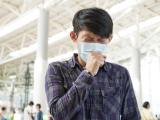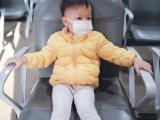June 17, 2003 (CIDRAP News) – Taiwan, one of the places hit hardest by SARS (severe acute respiratory syndrome), has been removed from the World Health Organization's list of areas to avoid, the WHO announced today.
Recent improvements in case detection, infection control, and contact tracing have led to a steep drop in the daily number of new cases in Taiwan, indicating that SARS is no longer a threat to visitors, the WHO said in a news release. The advisory against nonessential travel to Taiwan was issued May 21.
Dr. Cathy Roth, a WHO virologist who was in Taiwan in May, said, "SARS stimulated vast and very rapid improvements in the health infrastructure, especially in the areas of hospital infection control procedures, systems for data collection and reporting, mobilization of the public, and coordination of all agencies contributing to the outbreak response. We hope these improvements are permanent."
Only Beijing, China, remains on the WHO list of places that people are advised to avoid because of SARS. The WHO still recommends that international travelers be screened for SARS and SARS exposure before leaving Beijing, Taiwan, Hong Kong, and Toronto.
With 697 cases and 83 deaths, Taiwan has had the third largest SARS outbreak (after mainland China and Hong Kong) since the epidemic began in March, the WHO announcement said. Initially Taiwan had only imported cases, but local transmission was triggered by poor infection control at a hospital. In mid-May, Taiwan was reporting up to 70 new cases per day, some of which were attributed to a backlog of cases that had not been previously reported, WHO officials noted.
Meanwhile, at a SARS conference that convened today in Kuala Lumpur, Malaysia, WHO Director-General Gro Harlem Brundtland declared that the world has stopped the spread of SARS, according to Associated Press reports. Brundtland cautioned that while international health authorities have largely contained the disease in just 100 days, all health officials must immediately report future cases to curb further spread. Failure to do so could risk their country's credibility, she said.
Brundtland was addressing nearly 1,000 researchers, officials, and health experts in Kuala Lumpur who are discussing what has been learned since SARS emerged and what can be done to prepare for future cases.
The WHO said all areas that have experienced any local transmission of SARS should remain vigilant, because one new case or lax infection control can lead to new outbreaks.
As of today, the WHO reported a cumulative global total of 8,464 SARS cases, with 799 deaths. The United States has one new probable case since yesterday, bringing the US total to 73, according to the WHO.
See also:
WHO SARS site
http://www.who.int/csr/sars/en/



















